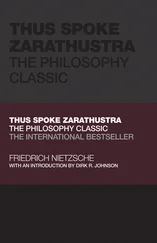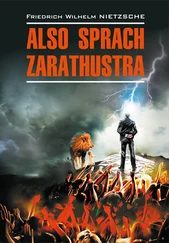Chapter LXV. The Magician.
The Magician is of course an artist, and Nietzsche's intimate knowledge of perhaps the greatest artist of his age rendered the selection of Wagner, as the type in this discourse, almost inevitable. Most readers will be acquainted with the facts relating to Nietzsche's and Wagner's friendship and ultimate separation. As a boy and a youth Nietzsche had shown such a remarkable gift for music that it had been a question at one time whether he should not perhaps give up everything else in order to develop this gift, but he became a scholar notwithstanding, although he never entirely gave up composing, and playing the piano. While still in his teens, he became acquainted with Wagner's music and grew passionately fond of it. Long before he met Wagner he must have idealised him in his mind to an extent which only a profoundly artistic nature could have been capable of. Nietzsche always had high ideals for humanity. If one were asked whether, throughout his many changes, there was yet one aim, one direction, and one hope to which he held fast, one would be forced to reply in the affirmative and declare that aim, direction, and hope to have been "the elevation of the type man." Now, when Nietzsche met Wagner he was actually casting about for an incarnation of his dreams for the German people, and we have only to remember his youth (he was twenty–one when he was introduced to Wagner), his love of Wagner's music, and the undoubted power of the great musician's personality, in order to realise how very uncritical his attitude must have been in the first flood of his enthusiasm. Again, when the friendship ripened, we cannot well imagine Nietzsche, the younger man, being anything less than intoxicated by his senior's attention and love, and we are therefore not surprised to find him pressing Wagner forward as the great Reformer and Saviour of mankind. "Wagner in Bayreuth" (English Edition, 1909) gives us the best proof of Nietzsche's infatuation, and although signs are not wanting in this essay which show how clearly and even cruelly he was sub–consciously "taking stock" of his friend—even then, the work is a record of what great love and admiration can do in the way of endowing the object of one's affection with all the qualities and ideals that a fertile imagination can conceive.
When the blow came it was therefore all the more severe. Nietzsche at length realised that the friend of his fancy and the real Richard Wagner—the composer of Parsifal—were not one; the fact dawned upon him slowly; disappointment upon disappointment, revelation after revelation, ultimately brought it home to him, and though his best instincts were naturally opposed to it at first, the revulsion of feeling at last became too strong to be ignored, and Nietzsche was plunged into the blackest despair. Years after his break with Wagner, he wrote "The Case of Wagner", and "Nietzsche contra Wagner", and these works are with us to prove the sincerity and depth of his views on the man who was the greatest event of his life.
The poem in this discourse is, of course, reminiscent of Wagner's own poetical manner, and it must be remembered that the whole was written subsequent to Nietzsche's final break with his friend. The dialogue between Zarathustra and the Magician reveals pretty fully what it was that Nietzsche grew to loathe so intensely in Wagner,—viz., his pronounced histrionic tendencies, his dissembling powers, his inordinate vanity, his equivocalness, his falseness. "It honoureth thee," says Zarathustra, "that thou soughtest for greatness, but it betrayeth thee also. Thou art not great." The Magician is nevertheless sent as a guest to Zarathustra's cave; for, in his heart, Zarathustra believed until the end that the Magician was a higher man broken by modern values.
Chapter LXVI. Out of Service.
Zarathustra now meets the last pope, and, in a poetical form, we get Nietzsche's description of the course Judaism and Christianity pursued before they reached their final break–up in Atheism, Agnosticism, and the like. The God of a strong, warlike race—the God of Israel—is a jealous, revengeful God. He is a power that can be pictured and endured only by a hardy and courageous race, a race rich enough to sacrifice and to lose in sacrifice. The image of this God degenerates with the people that appropriate it, and gradually He becomes a God of love—"soft and mellow," a lower middle–class deity, who is "pitiful." He can no longer be a God who requires sacrifice, for we ourselves are no longer rich enough for that. The tables are therefore turned upon Him; HE must sacrifice to us. His pity becomes so great that he actually does sacrifice something to us—His only begotten Son. Such a process carried to its logical conclusions must ultimately end in His own destruction, and thus we find the pope declaring that God was one day suffocated by His all–too–great pity. What follows is clear enough. Zarathustra recognises another higher man in the ex–pope and sends him too as a guest to the cave.
Chapter LXVII. The Ugliest Man.
This discourse contains perhaps the boldest of Nietzsche's suggestions concerning Atheism, as well as some extremely penetrating remarks upon the sentiment of pity. Zarathustra comes across the repulsive creature sitting on the wayside, and what does he do? He manifests the only correct feelings that can be manifested in the presence of any great misery—that is to say, shame, reverence, embarrassment. Nietzsche detested the obtrusive and gushing pity that goes up to misery without a blush either on its cheek or in its heart—the pity which is only another form of self–glorification. "Thank God that I am not like thee!"—only this self–glorifying sentiment can lend a well–constituted man the impudence to SHOW his pity for the cripple and the ill–constituted. In the presence of the ugliest man Nietzsche blushes,—he blushes for his race; his own particular kind of altruism—the altruism that might have prevented the existence of this man—strikes him with all its force. He will have the world otherwise. He will have a world where one need not blush for one's fellows—hence his appeal to us to love only our children's land, the land undiscovered in the remotest sea.
Zarathustra calls the ugliest man the murderer of God! Certainly, this is one aspect of a certain kind of Atheism—the Atheism of the man who reveres beauty to such an extent that his own ugliness, which outrages him, must be concealed from every eye lest it should not be respected as Zarathustra respected it. If there be a God, He too must be evaded. His pity must be foiled. But God is ubiquitous and omniscient. Therefore, for the really GREAT ugly man, He must not exist. "Their pity IS it from which I flee away," he says—that is to say: "It is from their want of reverence and lack of shame in presence of my great misery!" The ugliest man despises himself; but Zarathustra said in his Prologue: "I love the great despisers because they are the great adorers, and arrows of longing for the other shore." He therefore honours the ugliest man: sees height in his self–contempt, and invites him to join the other higher men in the cave.
Chapter LXVIII. The Voluntary Beggar.
In this discourse, we undoubtedly have the ideal Buddhist, if not Gautama Buddha himself. Nietzsche had the greatest respect for Buddhism, and almost wherever he refers to it in his works, it is in terms of praise. He recognised that though Buddhism is undoubtedly a religion for decadents, its decadent values emanate from the higher and not, as in Christianity, from the lower grades of society. In Aphorism 20 of "The Antichrist", he compares it exhaustively with Christianity, and the result of his investigation is very much in favour of the older religion. Still, he recognised a most decided Buddhistic influence in Christ's teaching, and the words in verses 29, 30, and 31 are very reminiscent of his views in regard to the Christian Savior.
Читать дальше











